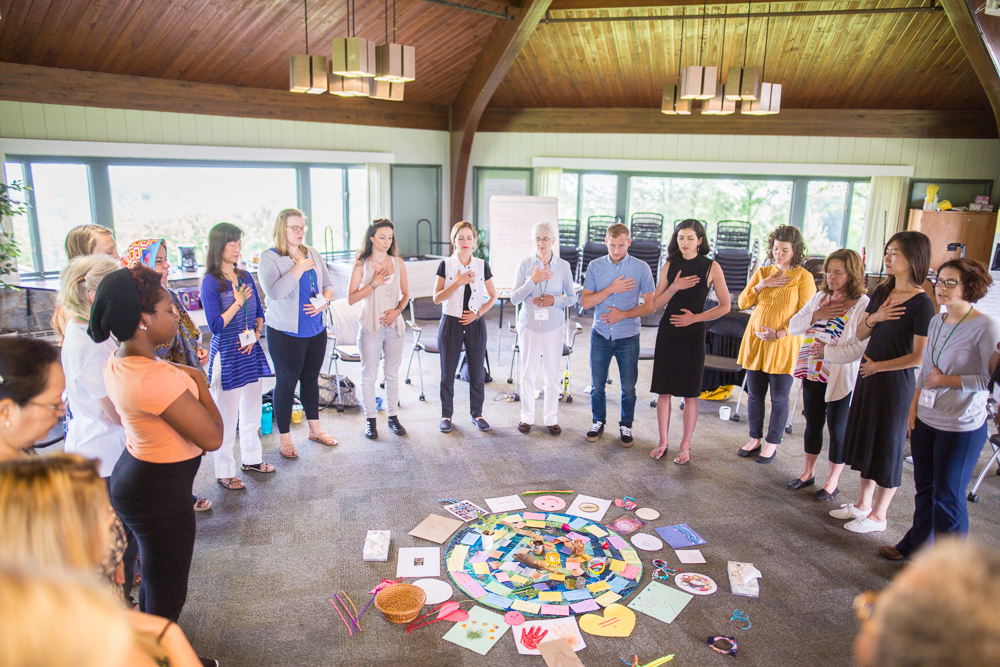A new MA in Education concentration and graduate certificate at Eastern Mennonite University will help educators mitigate the effects of trauma and build resilience in their students. Enrollment opens in January for the first cohort in the Diverse Needs: Trauma and Resilience in Educational Environments program.
“Identifying trauma and its impacts fills in a lot of blanks for educators,” said Meg Sander, who both directs and teaches in the Graduate Teacher Education program. “For a long time we knew something was interfering with students’ education and relationships, but we were lacking information about what that was. This program of study will give teachers a much better understanding of their students and how to create trauma-informed, resilience-fostering learning environments.”
Unlike in other professions that provide therapeutic services to young people on a more individualized level and often with more detailed personal information, educators work with classrooms full of students, all with different backgrounds that include adverse childhood experiences that can result in trauma. Left unaddressed, such experiences and trauma can impact poorer health outcomes later in life – but also the ability to engage with their immediate educational environments and form friendships.
Having informed and equipped educators, said Sander, makes it more likely that “every aspect of education, including instructional delivery and discipline, can help to mitigate trauma and build resilience.”
Designed for educators from classroom teachers to school counselors to administrators, course topics include trauma, restoration and resilience; neuroeducation; research in risk and resilience; foundations of restorative justice; and restorative discipline.
In addition, a course on self-care and resilience for educators “fosters self-awareness of signs of burnout, compassion fatigue and secondary traumatic stress,” said Sander, all of which can be “occupational hazards” for anyone working in a school.
For the master’s degree program, four core MA in Education courses are also required, including an action research course.
The program is the third Diverse Needs concentration offered by the MA in Education program, along with Special Education and Teaching English as a Second Language. Other concentrations include Restorative Justice in Education (RJE), Literacy/Reading Specialist, and Curriculum and Instruction.
A graduate certificate, which requires 15 credit hours, is offered in this subject and RJE.
The MA in Education is accredited by the National Council for Accreditation of Teacher Education, a performance-based system of accreditation that fosters competent classroom teachers. Graduates of accredited schools often perform better on licensing tests and find that moving from state to state is less of a barrier.
